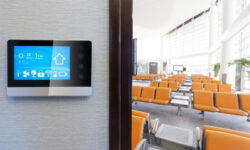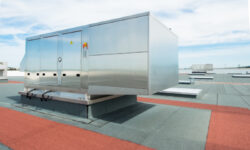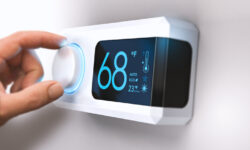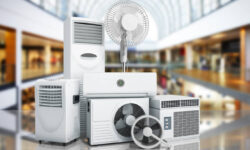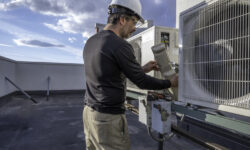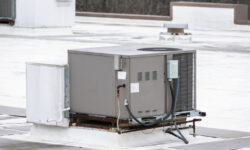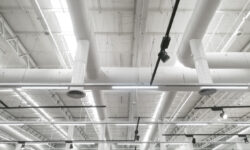Balancing Aesthetics and functionality in commercial HVAC design is something that The Severn Group assesses in commercial builds. In the world of architecture and interior design, aesthetics, and functionality often find themselves on opposite ends of the spectrum. This delicate balance becomes even more challenging when applied to commercial HVAC (Heating, Ventilation, and Air Conditioning) systems.
Read more →Balancing humidity control in commercial buildings while balancing comfort and energy efficiency is a challenge that building managers and owners face. Maintaining optimal humidity levels in commercial buildings is crucial for ensuring occupants’ comfort, health, and productivity and preserving the integrity of the building’s structure and equipment. Read on as we explore the importance of humidity control, its impact on occupants and the building itself, and strategies for achieving a balance between comfort and efficiency.
Read more →When deciding on air zone HVAC systems, the Variable Volume & Temperature (VVT) is an HVAC control system with many advantages. The VVT system overview is a cost effective way for building occupants to maintain & control temperature. Read on to learn how a VVT HVAC system is traditionally constructed and the benefits it can have for your business
Read more →Don’t touch that dial! At least, not unless you want to risk the wrath of your workforce. The ideal workplace temperature is hotly debated, but it’s about more than just comfort. Workplace temperature regulation directly impacts productivity. Here’s why your building should ensure that you regulate the environment for maximum comfort and efficiency.
Read more →At first glance, a central humidifier might seem like a strange device to consider, but there are several key benefits of central humidifiers for office spaces. Learn more about central humidifier benefits below. If you’re like many people, you might think that humidity is always the enemy of an enclosed space. After all, if your office has excess humidity, it can cause a host of problems. In truth, what you should actually be aiming for is the optimal humidity level, which is between 40% and 45%. A level above 50% is where discomfort sets in, and one below 30% is where things are considered too dry.
Read more →Restaurants consume significantly more electricity than many other types of businesses. According to recent data, restaurants use about 38 kilowatt-hours (kWH) per square foot of enclosed space. The majority of energy use is linked to processes such as Heating water, Refrigeration, Cooking, or Cooling and heating the building. Having a higher-than-average utility bill comes with the territory of owning a restaurant. The good news is that there are ways that you can reduce your establishment’s electric consumption and your monthly utility bill. One of the best tactics involves upgrading to an efficient HVAC system. On that note, join us as we outline what is the most efficient HVAC system for restaurants. If your system is wasting energy or you are simply ready for an upgrade, this guide’s for you.
Read more →When the Maryland summer starts, heat and humidity should be at the forefront of a building manager’s mind. Managers will often consider the heat but underestimate the humidity. Even without high temperatures, moisture-rich air can negatively affect the workplace. Humidity can cause workers to feel tired and make it hard to breathe, quickly weakening morale. How do offices end up with high humidity?
Read more →Your heating and cooling system may not be the most glamorous part of your building, but when it stops working, it’s definitely the most important! Annual air conditioner maintenance can ensure that you don’t have big, expensive emergency repairs when the temperatures soar. There are four key reasons you should never skip your commercial annual air conditioner maintenance.
Read more →Due to their size, commercial buildings require a more extensive HVAC system than residential homes. Some commercial structures have their HVAC systems on the side or back of the building. Others take advantage of large rooftop spaces by using rooftop units, commonly referred to as RTUs. This can give property owners more valuable ground-level real estate for parking or landscaping features.
Read more →Anyone who owns a commercial building knows that ductwork is an integral part of the property’s operations. In order to operate at maximum efficiency, your HVAC ductwork needs to be designed, sized, and installed correctly. Proper duct size is all too often an overlooked feature of commercial HVAC systems. The role that duct sizing and material play in maintaining a safe, comfortable environment should not be underestimated. Having the right size and material for your ducts will maintain comfortable conditions, improve indoor air quality, minimize energy losses, and lower your heating and cooling bills, as well.
Read more →
